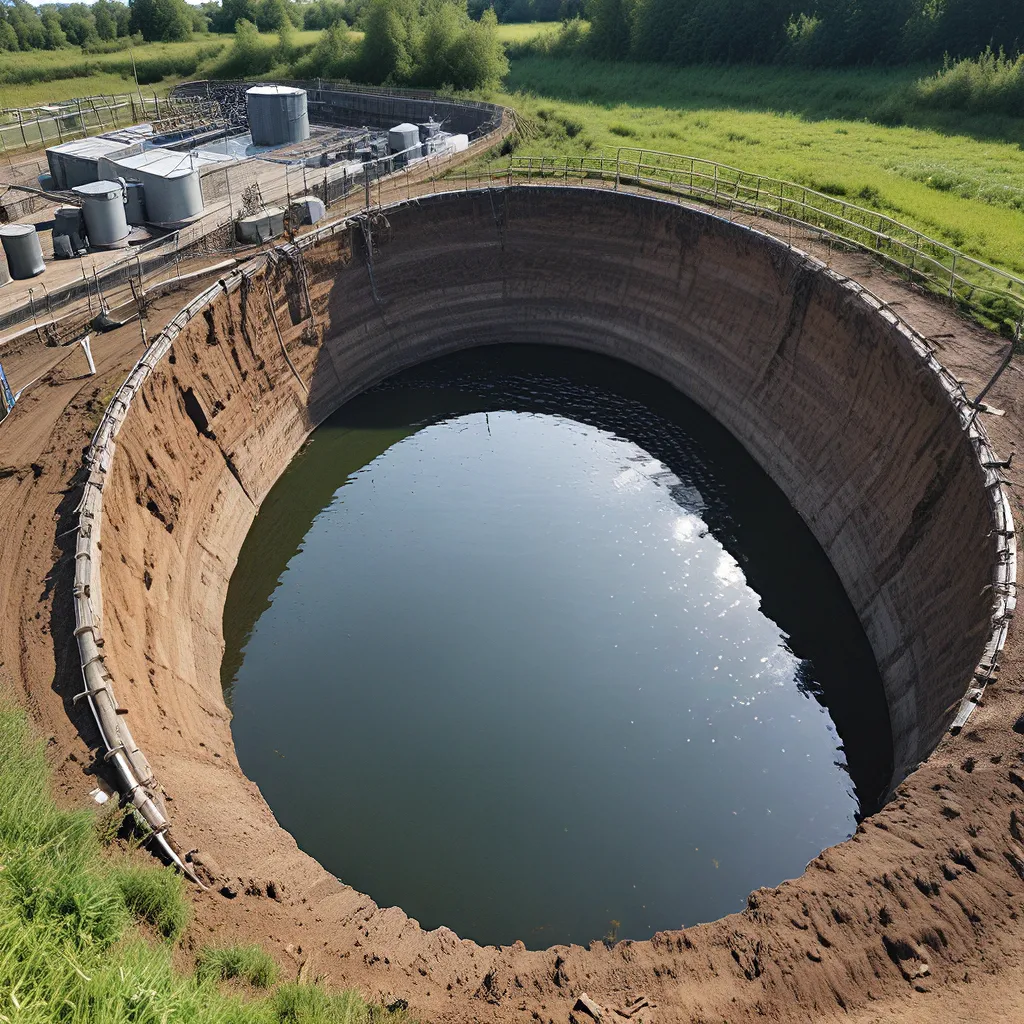
As the world grapples with the mounting challenges of climate change and environmental degradation, the concept of the circular economy has emerged as a promising solution. This innovative approach aims to transform our traditional linear “take-make-waste” model into a closed-loop system where waste is minimized, and resources are continuously cycled back into the production process. At the heart of this transition lies the wastewater treatment industry, which plays a vital role in unlocking the potential of the circular economy.
In our ever-evolving world, where population growth, changing consumption patterns, and increasing industrialization have led to a growing climate emergency, the need for sustainable solutions has never been more urgent. Greenhouse gas emissions and the staggering quantities of waste generated have caused ecological damage on an unprecedented scale, and the recent spate of extreme weather events serves as a stark reminder of the dire consequences we face.
But what if I told you that the solution lies in our own backyard – or rather, in the very wastewater that we’ve long treated as a problem? That’s right, my friends – the wastewater treatment industry is poised to play a pivotal role in the transition to a circular economy, and it all starts with valorizing those pesky waste streams.
Unlocking the Potential of Wastewater: A Treasure Trove of Opportunities
Picture this: a world where the waste products from our industrial processes are no longer discarded, but instead transformed into valuable, value-added products. This is the essence of the circular economy, and the wastewater treatment industry is uniquely positioned to make this vision a reality.
Recent research has highlighted the incredible potential of pulp and paper industry wastes to be repurposed and reintegrated into the production cycle. These waste streams, which include everything from sawdust and bark to sludge and spent processing liquors, can be leveraged to create a wide array of products, from biofuels and industrial chemicals to materials and construction elements.
But the benefits of this circular approach extend far beyond just the pulp and paper industry. Wastewater treatment facilities across a diverse range of sectors – from food and beverage processing to municipal waste management – are primed to join the circular revolution.
Exploring the Biorefinery Concept: Turning Waste into Wealth
At the heart of the circular economy lies the biorefinery concept, a holistic approach to waste valorization that transforms waste streams into valuable, commercially viable products. By applying advanced processing techniques and innovative technologies, wastewater treatment facilities can extract and repurpose a wide range of compounds, from biofuels and bioplastics to fertilizers and specialty chemicals.
One study has highlighted the incredible potential of this approach, noting that black liquor, a waste product from the pulp and paper industry, can be leveraged to produce bioethanol, hydrogen, and even polyhydroxyalkanoates (PHA) – a type of bioplastic with a wide range of applications.
But the benefits of the biorefinery concept extend far beyond just the pulp and paper industry. Wastewater treatment facilities in the food and beverage, municipal, and agricultural sectors are also exploring innovative ways to extract value from their waste streams. From methane-rich biogas to nutrient-rich fertilizers, the opportunities are endless.
Overcoming Challenges and Driving Circularity
Of course, the transition to a truly circular economy within the wastewater treatment industry is not without its challenges. Low sugar content in waste materials, inefficient fermentation of sugars by microorganisms, and the presence of toxic by-products are just a few of the hurdles that researchers and industry leaders are working to overcome.
But where there’s a will, there’s a way – and the wastewater treatment industry is proving itself to be a force to be reckoned with. By embracing co-production methods and multi-product biorefineries, these facilities are finding innovative ways to offset the increased capital and production costs associated with waste valorization.
Emerging technologies, such as advanced biocatalysis and membrane-based separation processes, are also paving the way for more efficient and cost-effective waste recovery and repurposing. And with the help of government incentives and policy support, the circular economy is poised to become the new norm within the wastewater treatment industry.
The Future of Wastewater Treatment: A Greener, More Sustainable Path
As we look to the future, it’s clear that the wastewater treatment industry is at the forefront of the circular economy revolution. By valorizing their waste streams and integrating them into the production cycle, these facilities are not only reducing their environmental impact but also creating new revenue streams and driving innovation.
But the true beauty of this transition lies in its holistic approach. By embracing the circular economy, wastewater treatment facilities are not only benefiting their own operations but also contributing to the wider sustainability of the industries and communities they serve. From biofuels and bioplastics to fertilizers and specialty chemicals, the potential is truly limitless.
So, the next time you flush the toilet or rinse the dishes, remember – the future of wastewater treatment is not just about cleaning up our mess, but about transforming it into something truly remarkable. And with the Alpha Wastewater team at your side, you can be sure that your facility is on the cutting edge of this exciting, sustainable revolution.